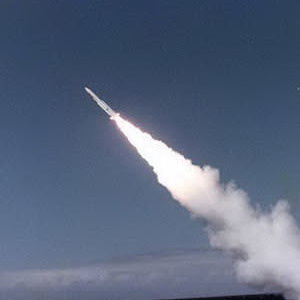Some Reports on Iran’s Nuclear Program Misleading
Boosting Iran’s Defense Capability Has Nothing to Do with the Nuclear Issue
Interview with Amir Mousavi, advisor to IRI Defense Minister

Military threat against Tehran is still considered an option by certain Western circles. In the meantime, IRI has launched a new round of military and diplomatic consultations with the Persian Gulf states. What follows in an Iranian Diplomacy interview with Amir Mousavi, advisor to IRI Defense Minister.
Following the release of IAEA Chief Mohammad ElBaradei’s latest report on Iran’s nuclear programs this week, the Western countries, particularly the 5+1 group have increased their efforts to step up pressures on Iran. Military attack seems to be still an option on the table of certain Western circles in this respect. These pressures come under conditions that IRI has launched a new round of defense and diplomatic consultations with the Persian Gulf states.
An interview with advisor to defense minister, Amir Mousavi:
Q: Why safeguarding the security of the Persian Gulf has been delegated to the IRI Revolutionary Guards?
A: The reason that the Islamic Revolution’s Guards Corps (IRGC) has been assigned the responsibility of maintaining security in the Persian Gulf is that currently most of the security issues in this region are handled by the IRGC. In other words, all the missile sites, submarines, some warships and the majority of the troops deployed in the Persian Gulf region are under the control of the IRGC. Therefore, to maintain security and for the cause of military coordination and also in view of the serious military threats from the US and Israel in the region, it was imperative to establish a coordinated command under the IRGC in the Persian Gulf. From now on, both troops and command centers will be operating in coordination with the IRGC. The threats are very serious at present and we need a unified commandership and coherence of forces in countering these threats.
Q: Lately we have been witnessing a new round of diplomatic consultations as well as political and military shuttles between Iran and the Persian Gulf states. In the latest move, IRI defense minister visited Doha recently and held talks with his Qatari counterpart. What is the aim of these shuttles?
A: The emir of Qatar paid an important visit to Tehran recently and important messages were exchanged between the two countries. Qatar has very good relations with the US and Israel. Its relations with Iran too are at a good level. Qatar can play a very important role in maintaining security and tranquility in the region. It can also act as a mediator to carry West’s messages for Iran and the vice versa.
In the meantime, Iran has threatened that in case of an attack on its soil it would attack all American interests in the region. As a result, Qatar which has the largest US military base in its territory feels threatened and in case of a military confrontation between Iran and US the Persian Gulf state would definitely incur some losses. It seems that Qatar is currently launching some diplomatic efforts and some reports indicate that Doha is trying to bring the views of the West and Iran closer to each other. The Islamic Republic of Iran supports Qatar’s efforts to forge understanding and find a diplomatic solution to Iran-West disputes.
The US and Israel keep issuing threats against IRI but the conditions for a strike are not and would not be that easy. Iran is in good defense shape to counter these threats. Militarily, we are ready to repel any aggression. More important that its military strength, Iran possesses very important cards in regional and international dimensions and Washington is well aware that Tehran can use those cards and inflict huge losses on US interests in the region and the world.
For the same reason, the Westerners too are very eager to find peaceful means to settle their disputes with Iran and prefer understanding to take the place of war and intimidation. In this connection, Oman, Algeria, Turkey and Qatar have entered the scene and various efforts are under way by the regional countries to forge some diplomatic understanding between Tehran and Washington.
It seems that the remark by Mr. Ahmadinejad that there would be good news after his upcoming visit to New York indicates that things are moving in line with a diplomatic understanding in the region. The pivot of this understanding would undoubtedly be Iran’s proposed package to the West. If these proposals are accepted by the West the problems of the Middle East, and particularly the question of Palestine would be completely settled.
Q: Some news sources report that IAEA has accessed information indicating the possibility of modifying Iran’s Shahab-III missile enabling it to carry nuclear warhead. What is your comment on this?
A: Such reports on Iran’s nuclear program are misleading. All the nuclear activities of IRI are peaceful. This fact has always been acknowledged in Mr. ElBaradei’s double edged reports on Iran. The US has certain claims regarding Iran’s nuclear case which are not accepted by Iran because Tehran has not received the documents claimed by the West and has therefore been required to provide answers in this respect just verbally.
Nevertheless, Tehran has launched an all-out effort because it thinks these threats are serious. Iran has boosted its deterrent power in the field of defense but what is claimed about Shahab-III missile is not true. Iran is working on Shahab-II missile to improve its range, explosive power, control, guidance and firing station. All these efforts are made to strengthen Iran’s defense capability and the nuclear issue has nothing to do with these efforts and our research works.

